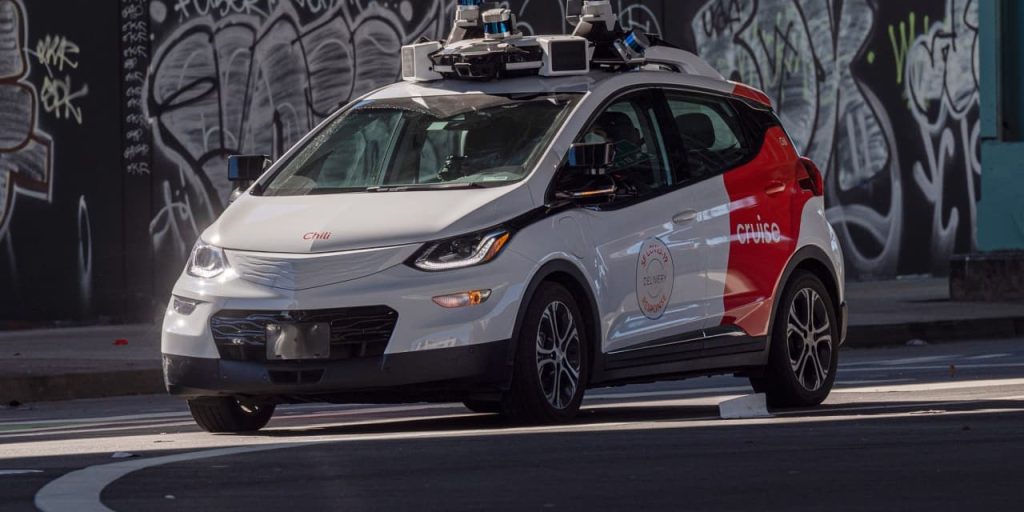Continuing turmoil at Cruise,
General Motors
‘ robotaxi unit, is raising hope about the outlook for the ride-hailing company
Uber Technologies.
Coming into Tuesday trading, Uber stock (ticker: UBER) was up about 24% since California suspended Cruise’s license to operate self-driving taxis following a crash involving one of the cars in late October. The
S&P 500
was up about 7% over the same span.
Monday evening, Cruise co-founder Daniel Kan resigned following news Sunday that CEO Kyle Vogt has left the company. Cruise has suspended all operations, including those with drivers overseeing the system, in response to the accident, in which a hit-and-run victim ended up under a Cruise taxi and was dragged several feet before the vehicle stopped.
The company has committed to conducting safety reviews using third-party experts. Cruise vehicles have been involved in a handful of other incidents.
GM (GM) owns about 80% of Cruise, but the problems haven’t been much of a headwind for the stock. The price has been essentially flat, at about four times the per-share earnings expected for 2024, indicating that there isn’t much Cruise value reflected in GM stock.
That doesn’t mean other companies can’t gain from Cruise’s troubles. The gain in Uber stock since the license was suspended makes sense to New Street Research analyst Pierre Ferragu, who wrote the “recent debacle” supports his view of robotaxi technology.
Ferragu isn’t against self-driving taxis, but he doesn’t believe pure-play robotaxi companies such as Cruise can achieve the scale needed to make money. “Whatever the quality and reliability of the technology, deploying a fleet of cars capable of delivering a universal robotaxi service consumes a lot of resources,” wrote the analyst in a Monday report.
In the first three quarters of 2023, Cruise lost roughly $1.9 billion and generated sales of about $76 million.
“The major difficulty most observers miss is that competing against ride-sharing networks of human-driven cars makes deploying robotaxis an uphill battle,” Ferragu said. “It is much easier for leading ride-sharing platforms to deploy autonomous technology, gradually ramping it within their existing fleet of human drivers, easily absorbing progressive ramp-up costs and benefiting from instant economic benefits.”
Cruise, and other self-driving taxi services such as Waymo, will need partners, he said. Uber, with some 40% of the global ride-haling market, is the most obvious beneficiary, Ferragu wrote.
Ferragu rates Uber shares Buy and has a $59 price target for the stock.
Most analysts on Wall Street like Uber stock. Overall, 45 out of 46 analysts, or 98%, covering Uber stock rate shares Buy. The average Buy-rating ratio for stocks in the S&P 500 is about 55%. The average analyst price target is about $61 a share, while the stock was at $54.60 on Tuesday morning.
Write to Al Root at [email protected]
Read the full article here















